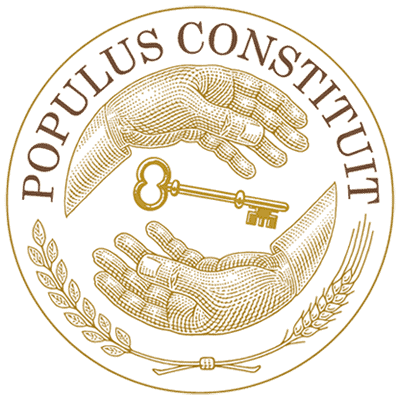Firms that score strongly in terms of corporate social responsibility (CSR) find that their cost of equity capital financing is consistently lower than firms with weaker CSR track records, according to Does Corporate Social Responsibility Affect the Cost of Capital?, winner of the 2011 Moskowitz Prize for Socially Responsible Investing
The Center for Responsible Business at UC Berkeley’s Haas School of Business announced the winners of the 2011 prize are Sadok El Ghoul, professeur agrégé, Ph.D., MBA, University of Alberta, in Edmonton, Canada, Omrane Guedhami, Moore Research Fellow and associate professor, Ph.D., M.Sc., Moore School of Business, University of South Carolina, in Columbia, SC, Chuck C. Y. Kwok, Charles W. Coker, Sr. Distinguished Moore Fellow and professor of International Business, Ph.D., M.Sc., Moore School of Business, University of South Carolina, in Columbia, SC, and Dev Mishra, associate professor and Centre for Strategic Financial Management Scholar, Ph.D., MBA, University of Saskatchewan, in Saskatoon, Canada for their paper published in the Journal of Banking and Finance (Vol. 35, Issue, 9, Sept. 2011).
The Moskowitz Prize was conferred at the 22nd annual SRI in the Rockies Conference in New Orleans on October 3, 2011. SRI in the Rockies is the leading annual forum for the sustainable and responsible investment industry in North America.
The paper examines the effect of corporate social responsibility (CSR) activities on the implied cost of equity capital, and argues that low CSR firms suffer higher costs of equity than high CSR firms because of a smaller investor base and higher perceived risks.
Using a sample of 2,809 U.S. firms over the period 1992 to 2007, the authors found that firms with better CSR scores exhibited lower cost of equity financing. Their findings remained consistent under a large number of robustness tests. In particular, their findings suggest that investment in improving responsible employee relations, environmental policies, and product strategies contributes substantially to reducing firms’ cost of equity. They also show that participation in two “sin” industries, namely, tobacco and nuclear power, increases firms’ cost of equity. The authors conclude that not only do CSR activities contribute to society at large, but they also benefit firms by lowering their financing costs. Sadok El Ghoul, Omrane Guedhami, Chuck Kwok and Dev Mishra, co-authors of this year’s Moskowitz Prize-winning paper, said:
Our team is honored and humbled to receive the 2011 Moskowitz Prize. This is a prestigious award that recognizes and promotes high quality and innovative research on corporate social responsibility. Receiving this award reflects the significance of our evidence that socially responsible firms enjoy lower cost of equity financing, which has important practical implications for firms, security analysts, portfolio managers, and socially conscious investors.
This was an exceptionally competitive year for the Moskowitz Prize. For the first time in the history of the competition, two studies were awarded Honorable Mention status. They were:
- Environmental Externalities and Cost of Capital by Sudheer Chava of The Georgia Institute of Technology, which found that investors demand significantly higher expected returns on stocks excluded by environmental screens (such as hazardous chemical, substantial emissions and climate change concerns) compared to firms without such environmental concerns; and
- Do Corporations Invest Enough in Environmental Responsibility? by Yongtae Kim and Meir Statman of Santa Clara University, which found the behavior of corporations is consistent with the claim that they act in the interest of shareholders, increasing or decreasing their investment in environmental responsibility as necessary to improve their financial performance.
Dozens of academic studies were submitted over the summer 2011 to be considered for the Moskowitz Prize. The $5,000 prize competition is open to authors of studies relevant to responsible investing. Lloyd Kurtz, Moskowitz Prize administrator, commented:
We have never before seen a field as deep and strong as this one. The quality of academic work done in the field of social investing each year has become really exceptional. We believe this sustained, serious analysis will ultimately bring great benefits—not just for social investors, but for society as well.
The Moskowitz Prize has been awarded since 1996 to encourage and recognize outstanding academic research on matters germane to the field of responsible investing. Named for Milton Moskowitz, one of the first investigators to publish comparisons of the financial performance of screened and unscreened portfolios, the Prize was originally created as a project of the Social Investment Forum; it came under the administrative umbrella of the Center for Responsible Business in 2005.
2011 Moskowitz Prize sponsors include Calvert Group, First Affirmative Financial Network, Nelson Capital Management, Rockefeller and Co., Neuberger Berman, and Trillium Asset Management.
The findings of these papers are important not only for investors but for society. Contrary to the cynical beliefs of many, they didn’t find that companies that externalize costs earned more money and had lower costs of capital, although I don’t think that kind of finding would surprise anyone.
From my observation, most Americans, like most Greeks, seem to want things and services without paying for them. While these studies demonstrated that externalizing costs doesn’t pay, we might find a very different outcome in the future if regulations or enforcement are relaxed. I hope readers don’t take these studies as proof of the wisdom of the market.
It may not be the market pricing in external costs so much as the cost of possible penalties and litigation. Insurance companies must factor in the cost of global climate change. It now looks like in many places in the world insurance will be too costly to obtain. Maybe, in the future, the liabilities for selling tobacco products will outweigh the potential profits. We’re not there yet. However, these studies also show that we could also dramatically increase the cost of capital to polluters and other irresponsible companies by increasing their fines and reputational risk.
